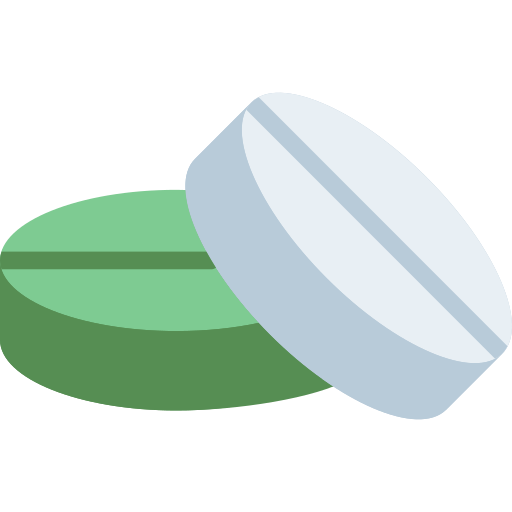
Losartan Potassium + Hydrochlorothiazide
50 mg+12.5 mg
Sunman-Birdem Pharma Ltd.
Product Details
Description
Angiotensin II formed from angiotensin I in a reaction catalyzed by angiotensin converting enzyme (ACE), is a potent vasoconstrictor, the primary vasoactive hormone of the renin-angiotensin system and an important component in the pathophysiology of hypertension. It also stimulates aldosterone secretion by the adrenal cortex. Losartan and its principal active metabolite block the vasoconstrictor and aldosterone-secreting effects of angiotensin II by selectively blocking the binding of angiotensin II to the AT1 receptor found in many tissues, (e.g. vascular smooth muscle, adrenal gland). In vitro binding studies indicate that losartan is a reversible, competitive inhibitor of the AT1 receptor. Neither Losartan nor its active metabolite inhibits ACE (kinase II, the enzyme that converts angiotensin I to angiotensin II and degrades bradykinin); nor do they bind to or block other hormone receptors or ion channels known to be important in cardiovascular regulation. Hydrochlorothiazide is a thiazide diuretic. Thiazides affect the renal tubular mechanisms of electrolyte reabsorption, directly increasing excretion of Sodium and Chloride in approximately equivalent amounts. Indirectly, the diuretic action of Hydrochlorothiazide reduces plasma volume, with consequent increases in plasma renin activity, increases in Aldosterone secretion, increases in urinary Potassium loss, and decreases in serum Potassium. The renin-aldosterone link is mediated by angiotensin II, so co-administration of an angiotensin II receptor antagonist tends to reverse the Potassium loss associated with these diuretics.
Losartan Potassium: No significant drug-drug pharmacokinetic interactions have been found in interaction studies with Hydrochlorothiazide, Digoxin, Warfarin, Cimetidine and Phenobarbital. As with other drugs that block angiotensin II or its effects, concomitant use of potassium-sparing diuretics (e.g. Spironolactone, Triamterene, Amiloride), potassium supplements, or salt substitutes containing potassium may lead to increase in serum potassium. As with other antihypertensive agents, the antihypertensive effect of Losartan may be blunted by the non-steroidal anti-inflammatory drug Indomethacin. Hydrochlorothiazide: When administered concurrently, the following drugs may interact with Thiazide diuretics: alcohol, barbiturates, or narcotics-potentiation of orthostatic hypotension may occur. Antidiabetic drugs (oral agents and Insulin): dosage adjustment of the antidiabetic drug may be required. Other antihypertensive drugs: additive effect or potentiation. Cholestyramine and colestipol resins: absorption of Hydrochlorothiazide is impaired in the presence of anionic exchange resins
The combination of Losartan and Hydrochlorothiazide is contraindicated in patients who are hypersensitive to any component of this product. Because of the Hydrochlorothiazide component, this product is contraindicated in patients with anuria or hypersensitivity to other sulfonamide-derived drugs.
Side-effects are usually mild. Symptomatic hypotension including dizziness may occur, particularly in patients with intravascular volume depletion (e.g. those taking high-dose diuretics). Hyperkalaemia occurs occasionally; angioedema has also been reported with some angiotensin-II receptor antagonists. Vertigo; less commonly gastro-intestinal disturbances, angina, palpitation, oedema, dyspnoea, headache, sleep disorders, malaise, urticaria, pruritus, rash; rarely hepatitis, atrial fibrillation, cerebrovascular accident, syncope, paraesthesia; also reported pancreatitis, anaphylaxis, cough, depression, erectile dysfunction, anaemia, thrombocytopenia, hyponatraemia, arthralgia, myalgia, renal impairment, rhabdomyolysis, tinnitus, photosensitivity, and vasculitis (including Henoch-Schonlein purpura)
Angiotensin-II receptor antagonists should be avoided in pregnancy unless essential. They may adversely affect fetal and neonatal blood pressure control and renal function; skull defects and oligohy dramnios have also been reported. Information on the use of angiotensin-II receptor antagonists in breastfeeding is limited. They are not recommended in breastfeeding and alternative treatment options, with better-established safety information during breastfeeding, are available.
Hypersensitivity: Angiooedema Periodic determination of serum electrolytes to detect possible electrolyte imbalance should be performed at appropriate intervals Hypokalemia may rarely develop, especially with brisk diuresis, when severe cirrhosis is present, or after prolonged therapy Impaired renal function and Symptomatic hypotension
-
Support 24/7
Call us anytime -
100% Safety
Only secure payments